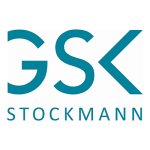Marcus Peter and Yi Wang of GSK Stockmann look at how Luxembourg has positioned itself as a platform for Chinese investments into the EU and the recent trend of Chinese investors building permanent foundations in the country
Luxembourg has developed as a major entry jurisdiction for Chinese M&A transactions into the European Union. Although only a few of the final targets of these transactions are located in Luxembourg, the country has benefitted from its reputation as platform jurisdiction for cross-border investments.
The deal flow slightly slowed down in 2018, following global trends. Prominent transactions in 2018 included the acquisition of a 25% stake in Encevo, the biggest Luxembourg electricity company, by China Southern Power Grid. The acquisition of 90% of the shares in the Luxembourg bank BIL by Legend Holdings was finally approved after several months by the Luxembourg regulator and the European Central Bank (ECB).
Meanwhile, to build solid foundations in the EU, a growing number of Chinese companies have set up European headquarters (to benefit from a growing workforce) in Luxembourg, such as the China Three Gorges Corporation and Beijing Enterprises Holding Limited. We see this as an important trend that shows that Chinese entities do not only conduct EU investments using Luxembourg vehicles but are also committed to increasing their presence on the ground in Luxembourg.
Luxembourg has a forthcoming attitude to Chinese investment. This is characterised by a strong business and political relationship between the countries. The growing political and business ties enable invested businesses to grow incrementally.
According to a report by the Mercator Institute for China Studies (Merics) and Rhodium Group (RHG), Luxembourg ranked in the top five European countries for Chinese investment in 2018. We estimate that Luxembourg will climb the rankings in 2019.
|
|
In 2019 the Luxembourg parliament approved a reduction of the corporate income tax rate to 17% |
|
|
Luxembourg already hosts the European headquarters of seven Chinese banks, which increase their business activities, workforce and balance sheets year by year. These Luxembourg headquarters have been opening branches in other EU jurisdictions, further underlining the importance of the Luxembourg banking sector. The Chinese banks are actively involved in financing M&A deals originated by Chinese investors.
The future outlook remains optimistic regardless of the general slowdown of Chinese foreign direct investment (FDI) in EU. This is due to the continuing high interest by Chinese investors in EU targets and the prominent position that Luxembourg has gained as a platform jurisdiction. Despite to the trade tensions between China and the US, the business relationship between Europe and China has remained strong. M&A deals focusing on certain sectors, such as consumer goods and infrastructure, are more likely to attract attention and interests from Chinese buyers.
On the other hand, Luxembourg will see a growing number of deals from the Chinese companies that have already used Luxembourg as a platform for M&A investments. Examples for this are the €9 billion takeover bid by China Three Gorges (Europe), a Luxembourg public limited liability company, for Energias de Portugal, the country's dominant power utility company. We also see quite substantial real estate acquisition deals (up to EUR 10 billion in one deal) being structure via Luxembourg platforms. Chinese acquirers are getting more and more used to the Luxembourg platform as gateway to European assets.
Investment approval
In general, in Luxembourg no specific pre-approval process for investments exists. Mergers and acquisitions may however be made subject to retrospective review by the competent Luxembourg authority.
Nevertheless, a new EU regulation (Regulation (EU) 2019/452) on FDI entered into force in May 2019 and will be fully applicable by November 2020. Under this new regulation, EU Member States are required to inform the European Commission and other Member States of any ongoing FDI review. Even if Luxembourg does not conduct any FDI review, it is still subject to the review process under the new regulation.
Generally, no investment restrictions exist either. However, certain specific rules apply in several sectors. For example, in the case of an acquisition in the financial sector (including banks and asset managers, for example) the investor must notify its intention to acquire a certain threshold in the Luxembourg bank or financial sector entity to the regulator: the Commission de Surveillance du Secteur Financier (CSSF). The CSSF has the right to oppose the transaction based on reasonable grounds and certain legal criteria. Similar restrictions apply in other industries and when it comes acquisitions of companies with shares listed on the Luxembourg Stock Exchange (LuxSE). In the latter case, these requirements are clearly established by takeover laws.
The Luxembourg law on competition of October 23 2011 created the Competition Council as the competent authority for scrutinising and analysing M&A transactions taking place in Luxembourg and involving Luxembourg entities. It is a post-closing merger clearance process. However, the Competition Council has indicated its readiness to encourage market participants to run a pre-merger control check by the Competition Council where feasible. The possibility therefore exists for investors looking to acquire a Luxembourg-based target entity.
No specific requirements exist for foreign investors either increasing or exiting investments, except as stated above for certain industries and types of target entities.
Investment techniques
The most common legal entities used to establish an acquisition structure are private limited liability companies (SARL) and joint-stock companies (SA). The SARL has a lower minimum share capital and seems to be used more often than the SA. Regarding investment activities by funds established by Chinese investors in Luxembourg, the most common structure seems to be the new fund vehicle RAIF (reserved alternative investment fund) and partly also the SIF (specialised investment fund), both set up in the form of a limited partnership (SCS or SCSp).
The key requirements for the establishment and operation of these vehicles is the setting up of an entity in Luxembourg to operate the vehicle. Furthermore, a minimum share capital needs to be provided to the Luxembourg vehicle and management procedures need to be put in place. With a view to setting up investment funds that carry out M&A activities, it is necessary to verify the set-up fits within the scope of the regime of alternative investment fund managers. The investment fund is also subject to the approval of the CSSF, as applicable.
Dispute resolution
Luxembourg is party to over 100 bilateral investment protection treaties including a treaty with China, the latest version of which entered into force in 2009.
In general, Luxembourg courts are bound by the rule of law and will review disputes in a fully neutral and independent manner. The courts typically would review cases in normal duration time and issue titles for enforcement useable in Luxembourg and abroad (as far as covered under respective regulations and treaties). Dispute resolution proceedings by way of arbitration are also possible if such arbitration in Luxembourg was agreed on in the respective agreements. The Luxembourg arbitration courts are more and more used in international agreements given Luxembourg increasingly becomes a platform for cross-border investment and also joint-venture vehicles and investment funds carrying out M&A activities worldwide.
Local courts also respect foreign judgments and international arbitration awards are enforceable, provided treaties and EU legislation allow such enforceability. In general, this is the case. On the flip side, judgments and arbitration awards from Luxembourg are generally enforceable in other jurisdictions provided treaties and EU legislation allow such enforceability.
Forex controls and local operations
In general, no foreign currency or exchange restrictions apply. Even the Luxembourg vehicles mentioned above may have their share capital established in other currencies than the euro.
Tax
Luxembourg benefits from an extended network of double taxation avoidance treaties, which is advantageous for FDI into and out of Luxembourg. Due to the application of European legislation on the parent / subsidiary relationships, typically no withholding tax applies on dividends. Furthermore, earlier in 2019 the Luxembourg parliament approved a reduction of the corporate income tax rate to 17%.
The government has no specific FDI tax incentive schemes in place and there are no specific reciprocal tax arrangements between Luxembourg and China in place.
About the author |
||

|
|
Marcus Peter Partner, GSK Stockmann (Luxembourg) T: +352 2718 0200 Marcus Peter heads the funds and private equity practice at GSK Luxembourg. Peter is a lawyer in Germany (since 2004) and Luxembourg (since 2005) and obtained his LLM and PhD degrees from the European Institute in Saarbruecken, Germany. Prior to GSK Luxembourg, Peter worked for a Luxembourg law firm from 2004 to 2016. Since 2017 he has been a partner at GSK Stockmann in Luxembourg. Peter is an expert in Luxembourg investment funds and private equity law, M&A, corporate and real estate law. He speaks German, English, French and Russian. Marcus is a member of the Luxembourg Private Equity Association (LPEA), Chinese-Luxembourgish Chamber of Commerce, DAV Luxembourg, EVER and CBBL (Cross Border Business Lawyers). |
About the author |
||

|
|
Yi Wang Senior associate, GSK Stockmann (Luxembourg) T: +352 2718 0200 Yi Wang is a senior associate at GSK Luxembourg. His practice focuses on two areas: private equity fund formation and banking transactions. He advises PE sponsors in relation to fund formation, setting-up of acquisitions and other structures. He also advises major Chinese banks located in Luxembourg in connection with their M&A financing, structured financing and loan trading. Yi received his JD from the University of Minnesota Law School in 2015 and a BA in international finance from Tianjin University of Finance and Economics in 2009. Prior to joining GSK, Yi worked for an independent Luxembourg law firm. He also had work experience both in the US and China. He speaks Chinese Mandarin and English. Yi is the vice president of the China-Luxembourg Chamber of Commerce and a member of Young Leader Committee of the Luxembourg Private Equity Association. |


